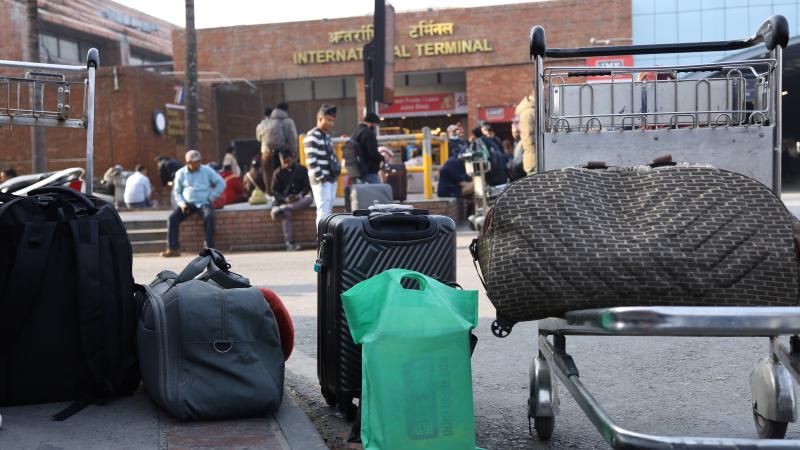Pelosi’s select committee on wealth inequality sparks controversy
The select committee was created in January, and House Speaker Nancy Pelosi appointed lawmakers to it last week.
The House Democrats' new select committee on wealth inequality is sparking controversy.
The select committee was created in January of this year, but its seats remained empty until this week. House Speaker Nancy Pelosi (D-Calif.) announced eight members this week to make up the committee, which is officially called the Select Committee on Economic Disparity and Fairness in Growth.
"The past several decades have shown with devastating clarity the marked imbalance between the financial fortunes of CEOs and workers," Pelosi said. "The reverence of those who amass profits by stagnating wages has seriously undermined the lives and livelihoods of many Americans, while slowing economic growth in our country. This year, the disturbing, dangerous trend of economic disparity has also been accelerated by the coronavirus economic crisis.
"The devaluing of work has had a negative impact on consumer confidence, job creation and economic growth," she added. "And the situation of families no longer believing that their children will have a brighter future than they is seriously damaging and demoralizing to our society."
Pelosi sparked backlash, though, for adding to the committee one of Congress' more controversial members: Rep. Alexandria Ocasio-Cortez (D-N.Y.). She has a history of incendiary comments that have drawn widespread opposition from Republicans.
Ocasio-Cortez has openly embraced Democratic socialism and proposed legislation along those lines, including a massive Green New Deal package that would pay those "unwilling to work."
Recently, she took fire in the aftermath of fighting between Israel and the terrorist group Hamas for comments her critics called anti-semitic.
"What could go wrong?" conservative author and commentator David Harris Jr. wrote on Twitter.
The congresswoman is on the committee to address "generational disparities and increasing worker power in the economy."
"I think that one of the things that would be interesting for us to examine is that we should probably revisit some of the basic macroeconomic assumptions about the U.S. economy and not take for granted that inflation is due to one thing or another, or that full employment is impossible in the United States of America," Ocasio-Cortez said. "And I believe that's been reiterated at the White House with very promising assertions and ambitious goals and trying to make sure that every American has a dignified job."
Democratic leadership said the committee is modeled after the Temporary National Economic Committee founded in 1938 to study the cause of the Great Depression.
The decision also comes after many of the nation's richest residents had their tax returns published by ProPublica, drawing scrutiny of how much billionaires like Elon Musk and Jeff Bezos pay in taxes.
The committee also comes as the Biden Administration pushes for higher taxes on wealthier Americans and an increase in the corporate tax rate.
Without naming names, Pelosi had harsh rhetoric for the wealthiest Americans, calling their high pay "immoral."
"It's very clear the widening chasm between CEOs — CEO compensation, worker pay has gone from unfair to immoral," Pelosi said. "The stagnation of worker pay: an historic picture of injustice. Maybe about 40 years ago, if you saw our economy, you would see if productivity rose, worker pay rose, CEO pay rose. Within the past 40, more like 35 years, it started to be, productivity rises, wages stagnate, CEO pay increases. I call it a 'right angle going in the wrong direction.' To the point where some CEOs make in a few weeks, what their entry-level employees make in a lifetime, in a lifetime."
Whether the committee spurs real policy change, though, remains to be seen.
"So, the question is, let us define the challenge and hear from those most affected by it, most in need, most concerned about the diminishing of the luster of the American Dream, because that has a very demoralizing effect on our country," Pelosi said. "Everybody has to think that they and their families will have a better future than their parents. And when that is dulled, again, not good for a country."















